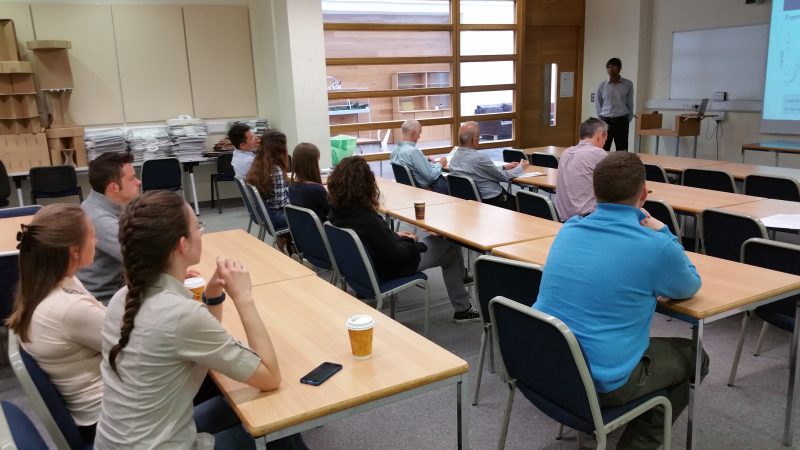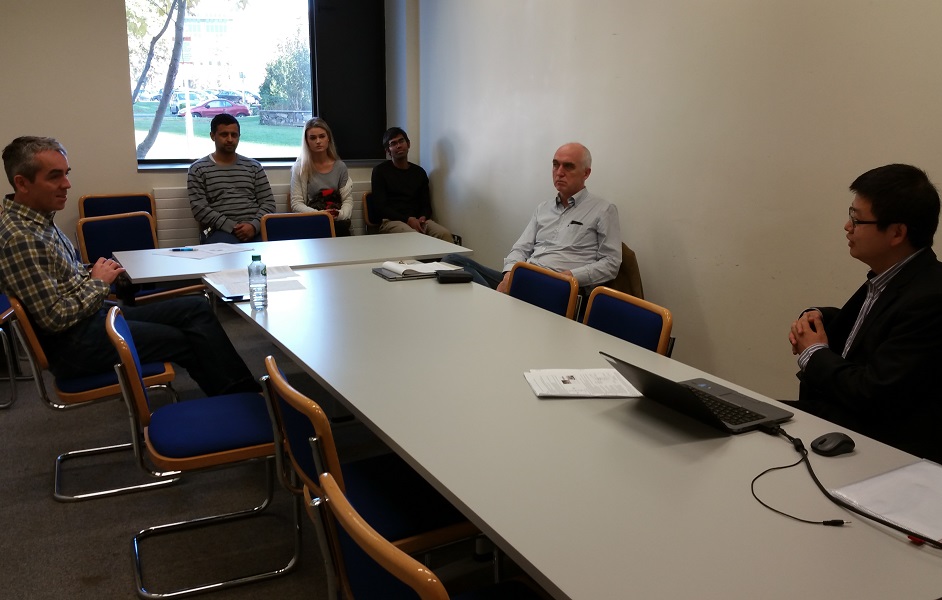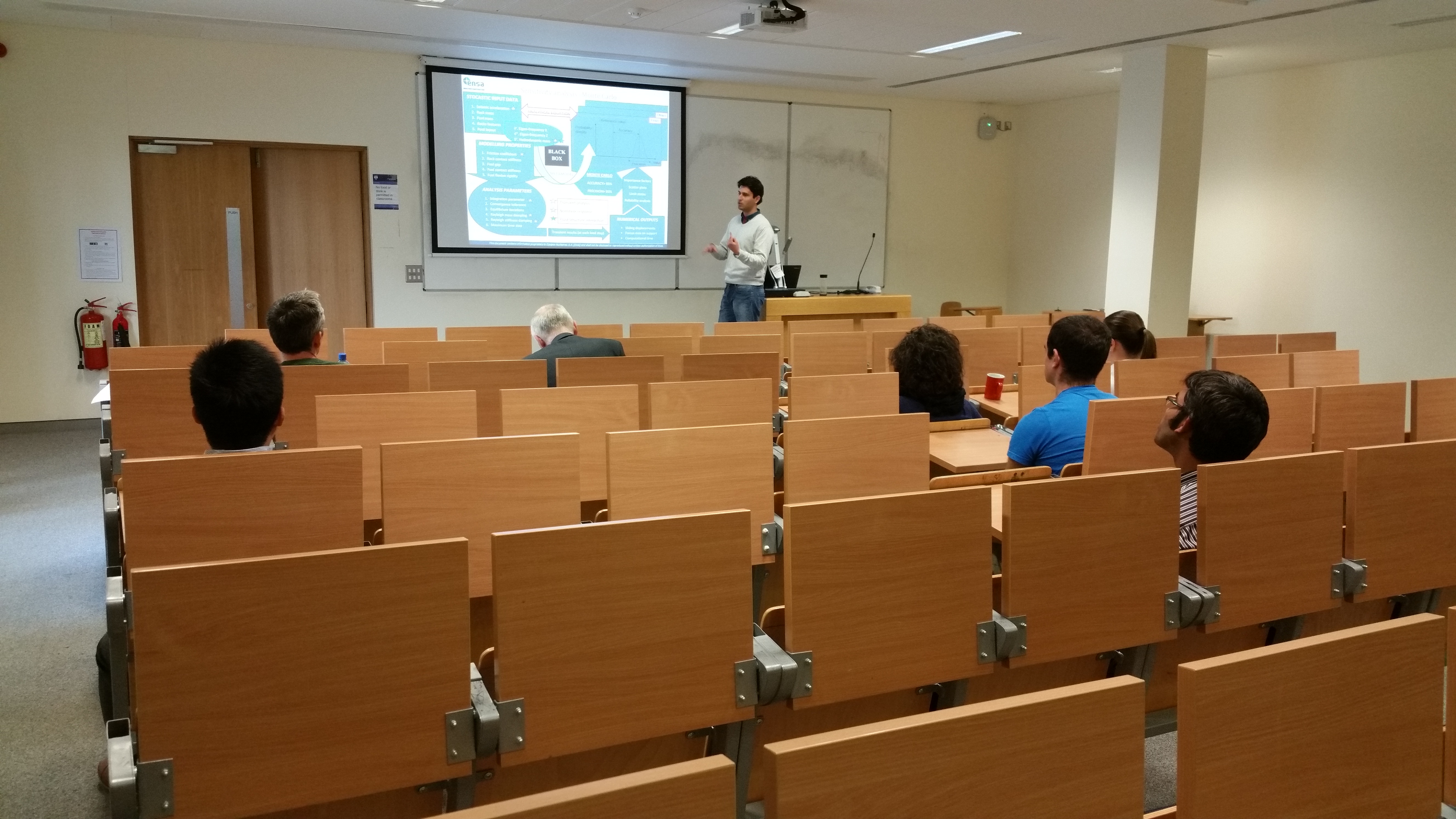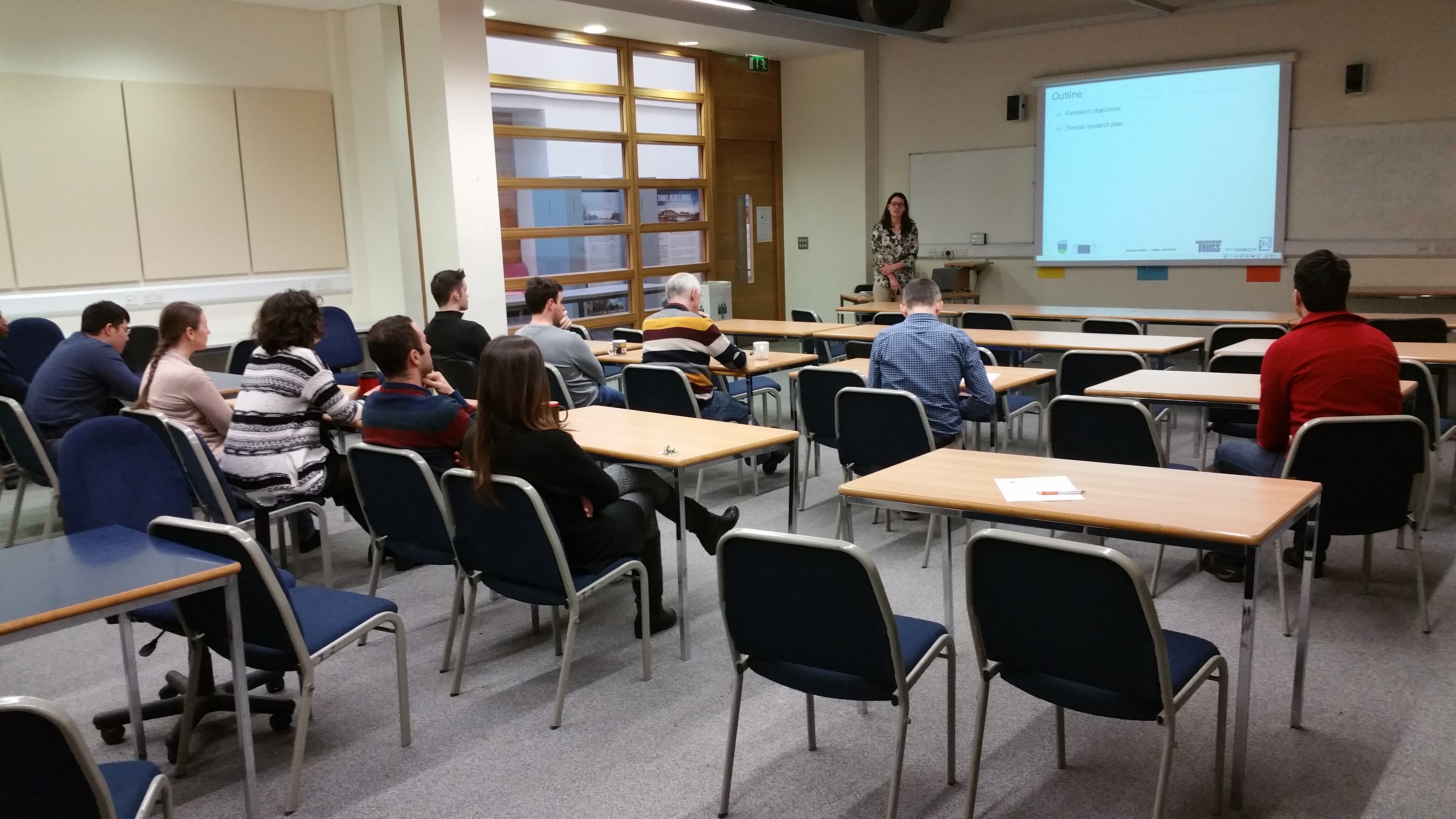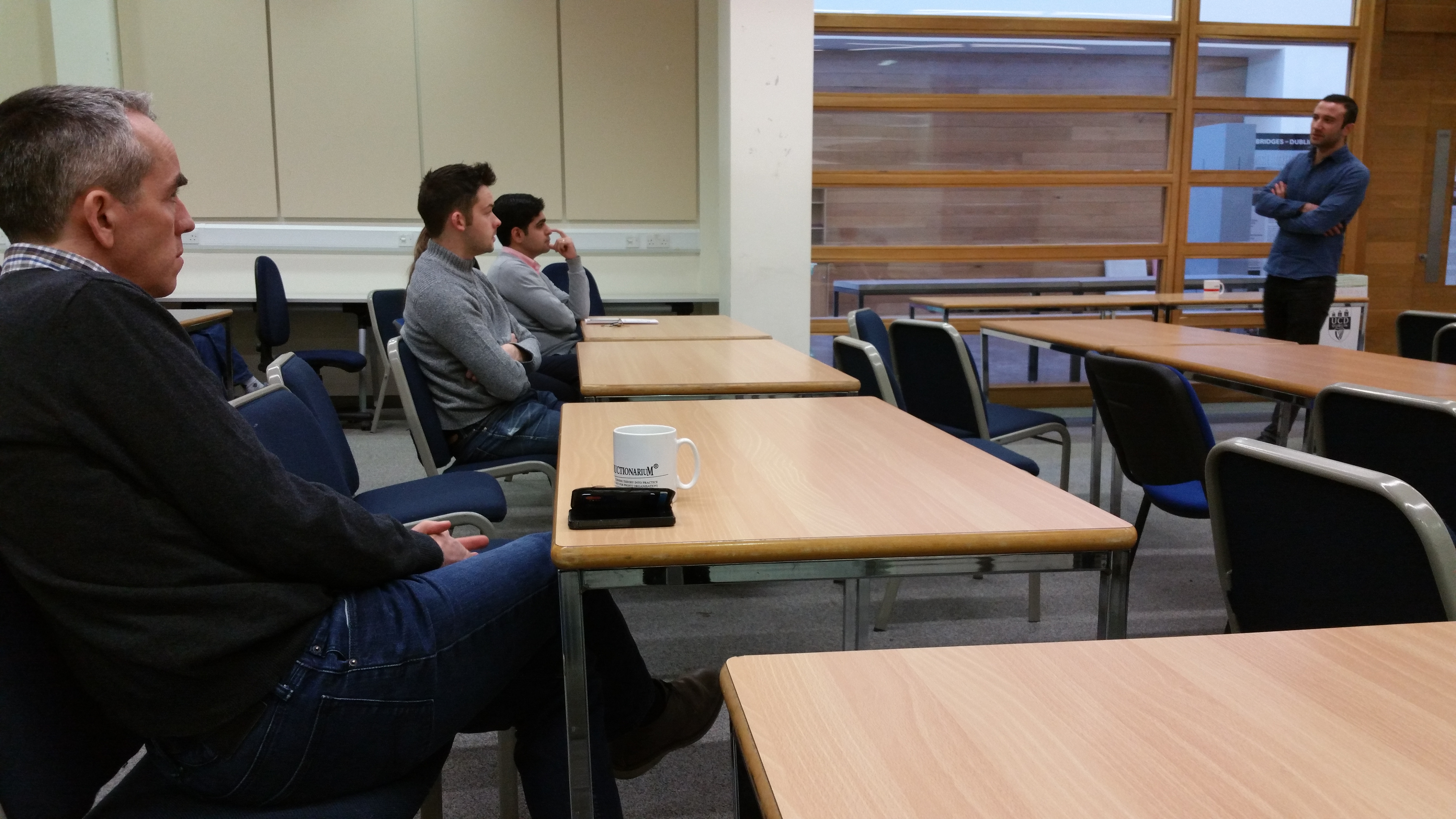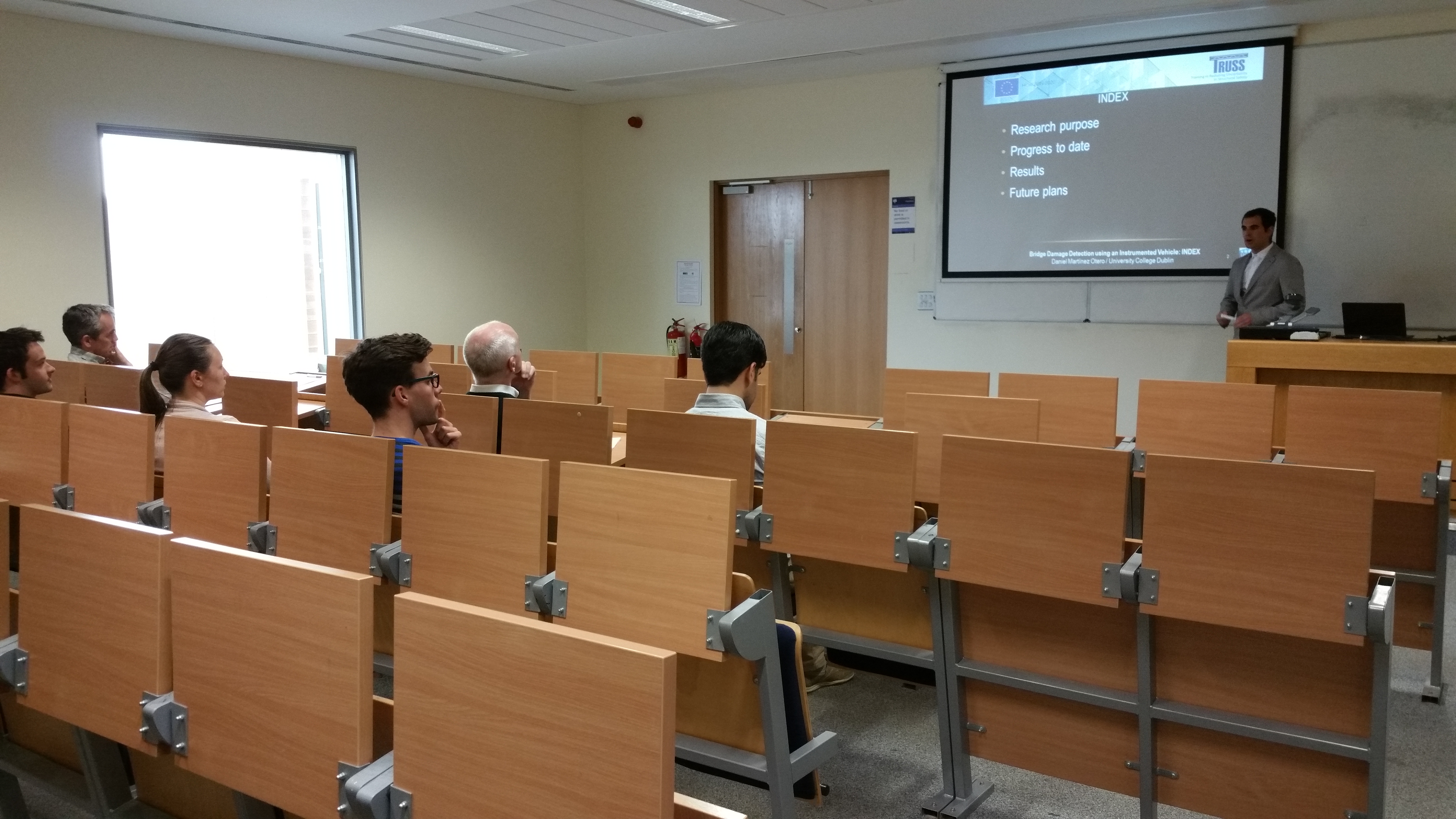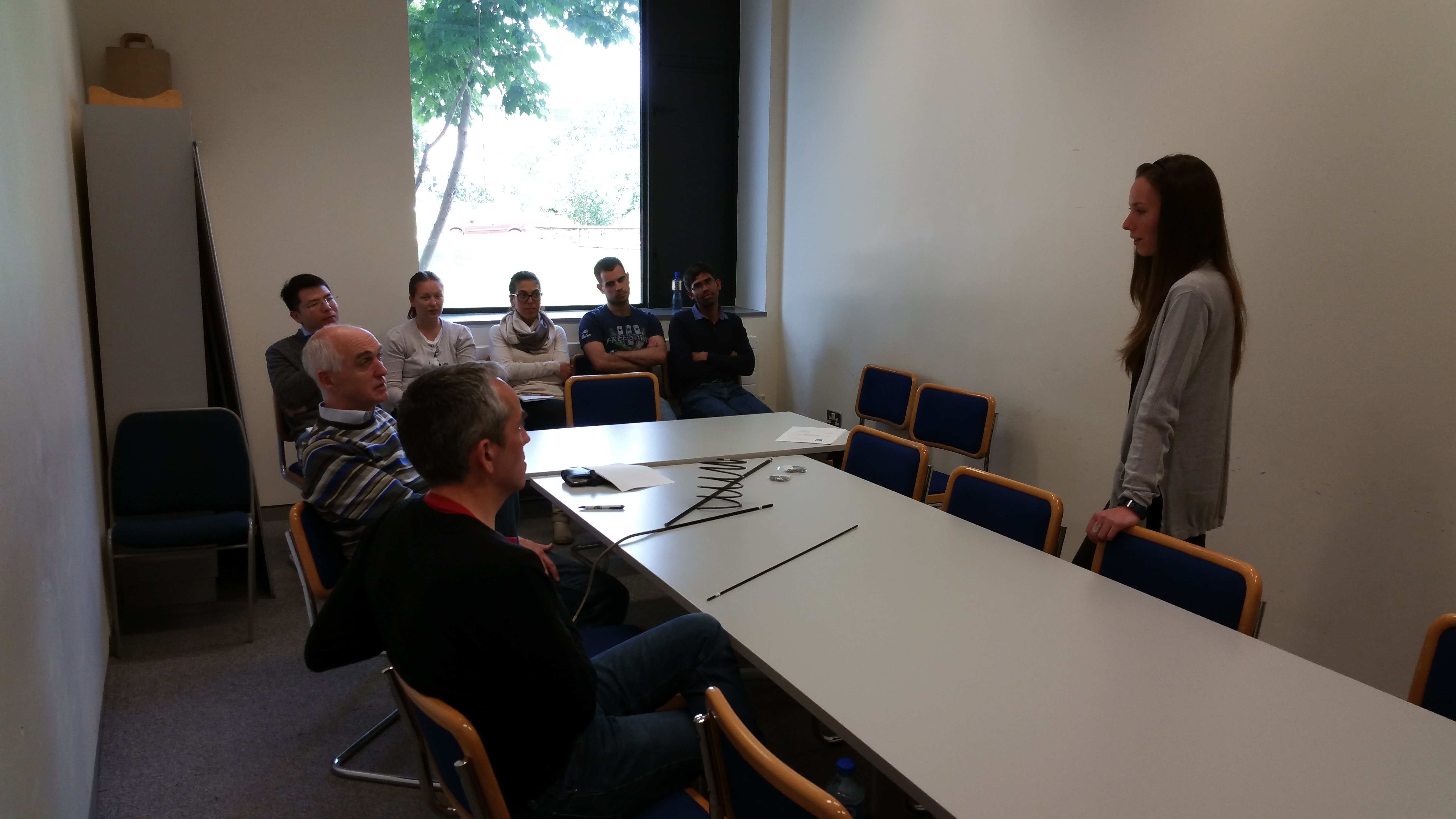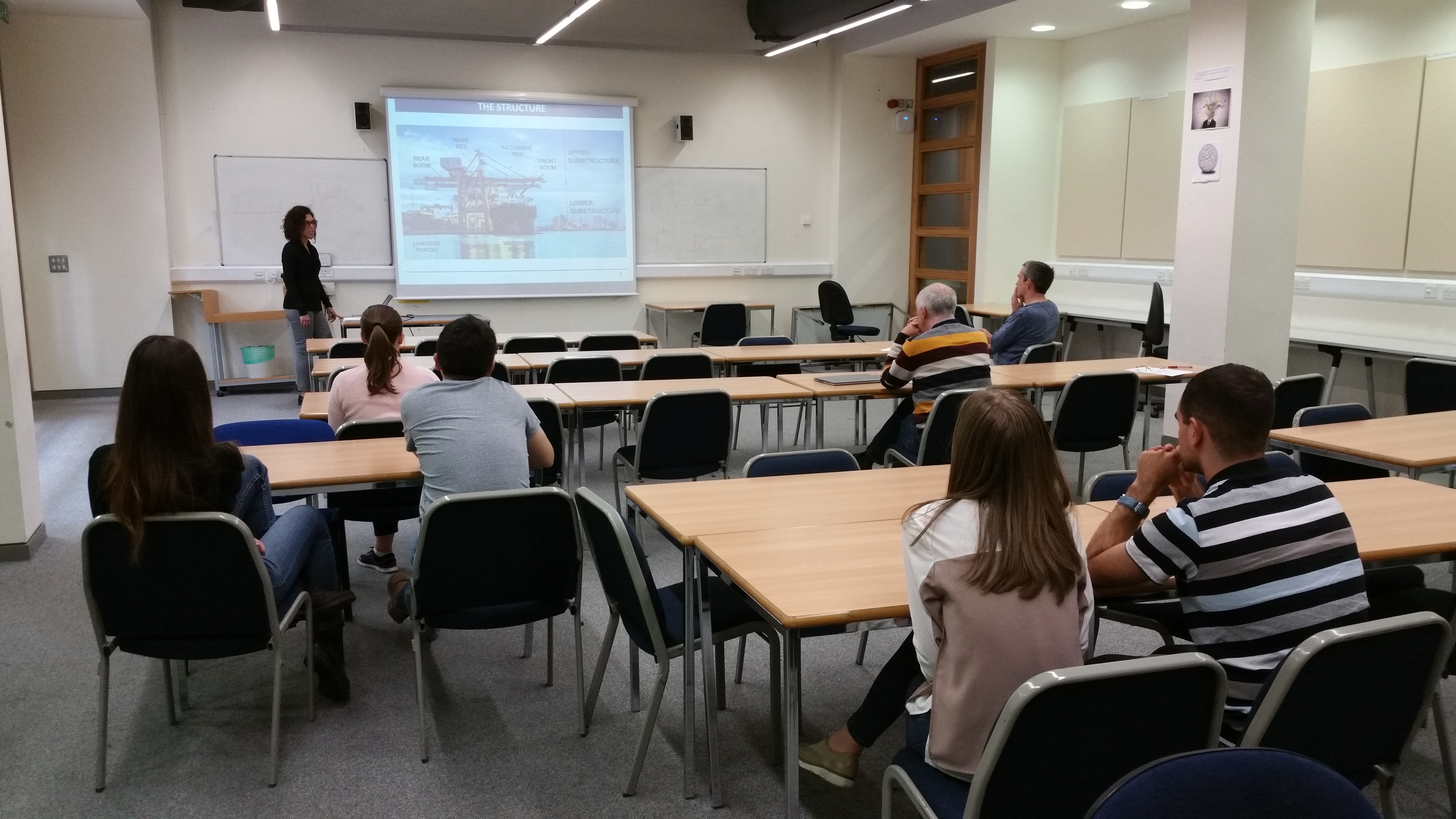All TRUSS ESRs are enrolled in a PhD programme at one of the academic beneficiaries. Therefore, in addition to the research, training and dissemination activities related to TRUSS, they must meet a number of requirements before submitting their PhD thesis for assessment. The pictures in this post show Barbara Heitner (ESR8), Farhad Huseynov (ESR7), Alberto Gonzalez (ESR3), Daniel Martinez (ESR12), Sofia Antonopoulou (ESR1), Giulia Milana (ESR6), Shah Nur Sourav (ESR2) and Guang Zou (ESR5) during their formal public presentation on the 6th and 7th February, 9th and 16th May, 14th and 15th June, 27th July and 27th October 2017 respectively, to other researchers and staff members for their PhD transfer from Stage 1 to Stage 2 in University College Dublin (UCD).
As an example, the following requirements are taken from UCD academic regulations. Similar regulations can be found in other Universities of TRUSS consortium.
The PhD degree is awarded on successful completion of a structured programme of research, study and personal and professional development, prescribed by the supervisor(s), with the advice of the Doctoral Studies Panel. The degree of PhD will be awarded only where a student has successfully completed a programme of study with a minimum of three calendar years full-time of Doctoral level research activity. The core of the doctorate is a coherent programme of research, which requires that the student successfully completes original doctoral (Level 5) research, the outcome of which makes an original and substantial contribution to knowledge. The PhD degree shall only be awarded where the work conducted has been assessed on the basis of a submitted thesis in acceptable form and deemed to be of a satisfactory standard.
A course of study and research leading to the degree of PhD is pursued in two stages: Stage 1 doctoral studies will normally be completed by a full-time student in one calendar year; Stage 2 doctoral studies will normally be completed by a full-time student in 2 – 3 calendar years.
- Stage 1: Stage 1 is an initial period of advanced education, training and research. There are no restrictions on the relative proportion of taught modules, generic skills training, research training and original doctoral research within Stage 1 doctoral studies.
- Stage 2: Stage 2 is largely dedicated to original doctoral research (Level 5) but may also include advanced education and research and generic training. There is no restriction on the balance between these components except that the total awardable credit for education and training taught modules across the entire programme cannot exceed 90 credits.
Each School establishes processes and procedures to monitor the progress of individual PhD students registered in the School, and to assess each student formally at the end of Stage 1 doctoral studies. Therefore, there is an internal panel that assesses the progress of the student and their competence and capacity to complete a doctorate at the end of Stage 1 and at any other point in the programme. The Assessment Panel bases its judgement on a written statement of progress and a research plan from the candidate, and a written progress report from the Principal Supervisor. The Panel also requires a presentation from the student and may interview the student and/or the Principal Supervisor. The photos of this post illustrate the time of transfer presentation for some TRUSS ESRs.
The structured PhD normally also includes additional educational and training elements which develop the advanced knowledge, skills and competencies required for successful original research and/or support the acquisition of generic or transferable skills. A programme of study and research leading to the degree of PhD may include up to but no more than 90 credits awarded for the successful completion of education and training modules, such as modules providing specific disciplinary education, generic or transferable skills or advanced research training, including experiential research training. Research and generic skills training, including experiential research training, may also be delivered as modules with credit volumes determined by the student effort involved, specified learning outcomes and appropriate assessments. The credit for such taught modules is awarded after satisfactory completion of the modules and successful completion of any associated assessment. A minimum number of credits (30 taught credits) is required to be achieved from available modules.
In UCD, there are modules that acknowledge the training activities provided by TRUSS ITN, typically together with additional evidence of having met the learning outcomes (i.e., reports, presentations), in the form of credits. It is the case of modules CVEN40250 (Specialist Studies – 5 credits), CVEN40350 (Research Methods – 5 credits) and CVEN50000 (Industrial Experience – 10 credits), which reward one training week in TRUSS, a series of formal presentations with interactive questions & answers to/by local researchers, and Industrial placements in TRUSS respectively. Recognised learning for training planned by Marie Skłodowska-Curie ITNs can also be found in modules of other Universities .




